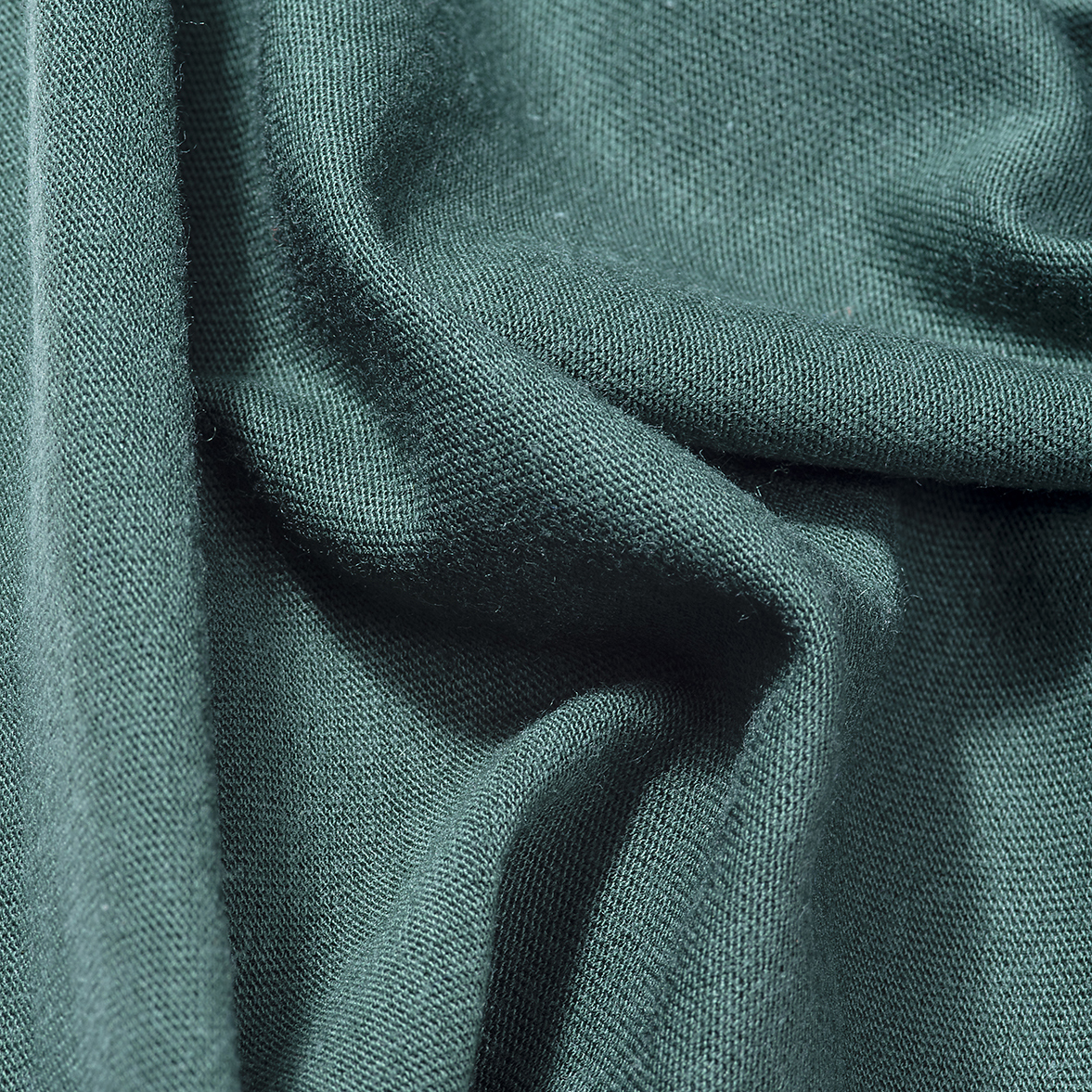
Tencel®
Tencel®, also called lyocell, is an environmentally friendly material made from cellulose (wood pulp) and a non-toxic solvent. Tencel® is a trademark of the Austrian company Lenzing, which received a European Award for its innovative and environmentally friendly manufacturing process. Lyocell is very popular in textiles because it is a breathable, strong fabric, comparable to silk. It is sometimes called “plant silk”.
The fibres are made from eucalyptus, bamboo or hardwood pulp (spruce, pine, birch). Cellulose (a protein naturally found in wood) is extracted and dissolved in a non-toxic solvent. The solvent used in the manufacturing process is not harmful, and is 99.7% recyclable and recovered thanks to an almost closed-loop circuit where the materials are constantly recycled, purified and reused. Tencel® therefore has a low environmental impact.
Tencel® is mainly used for clothing, accessories and linens.
Pros
A non-toxic and recyclable solvent is used for its manufacture, unlike standard viscose rayon which requires the use of a highly toxic and polluting chemical. In addition, Tencel® fibres are produced as part of an almost closed-loop process: 99.7% of the solvent is recovered and water is also recycled. Again, this is a major difference compared with conventional viscose rayon for which carbon disulphide is not recoverable.
The wood pulp used for Tencel® comes from forests certified by organisations such as FSC (Forest Stewardship Council) and PEFC (Programme for the Endorsement of Forest Certification), which guarantee protection for both the environment and the social rights of workers, unlike traditional production chains.
The smooth, even surface of lyocell fibres makes the material particularly stable, resistant to pills and frays. Moreover, it is an extremely soft material that feels delightfully gentle on the skin. Smooth and silky, lyocell creates a beautiful draping for your items.
Tencel® is hydrophilic, which means that the surface of the fibre remains dry while still absorbing moisture, so it does not feel unpleasant on the skin in wet conditions. The material dries very quickly, preventing the bacteria that cause the odours in perspiration from forming, which is an undeniable advantage compared to synthetic materials such as polyester.
This material is 100% recyclable and biodegradable, and is kind to the planet from start to finish.
Cons
Lyocell is more expensive than conventional viscose rayon. This is due to the technology used to process the raw materials required to obtain Tencel® fibres.
Not all of the wood pulp used to produce Tencel comes from Europe – some of it is harvested in Asia (eucalyptus and bamboo). However, all raw materials come from sustainably managed forests, with FSC or PEFC certification.
We would be happy to produce your next Tencel® item. Please do not hesitate to contact us to discuss your future project.


